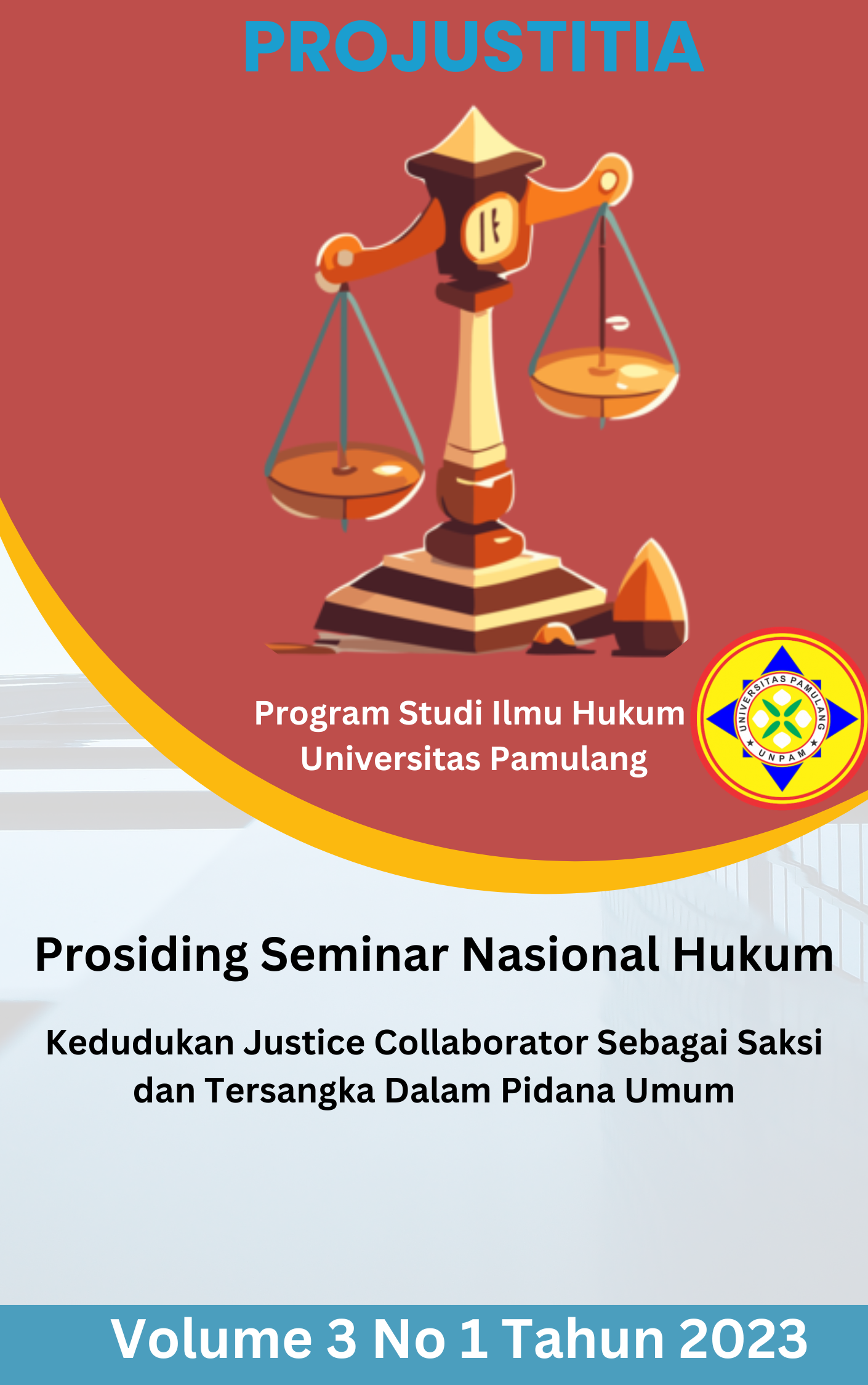ANALISIS YURIDIS TERHADAP HAK PEKERJA BERDASARKAN PASAL 79 DAN 88 UU NO 11 TAHUN 2020 TENTANG CIPTA KERJA ANALIS PUTUSAN MK NOMOR 91/PUU-XVII/2020
Abstract
The Constitutional Court Decision Number 91/PUU-XVIII/2020 states that formal review of unconstitutional Job Creation Law is conditional and still valid with a deadline of 2 (two) years for improvement. The formal examination of the law is aimed at assessing the validity of the process and stages, techniques, and external forms of the formation of laws and regulations. Theoretically a regulation which is declared conditionally unconstitutional in a formal examination does not have binding legal force as a whole. Therefore, it is necessary to conduct research related to the formal review of the Job Creation Law in the Decision of the Constitutional Court Number 91/PUUXVIII/2020 in the perspective of Legislation. The research is juridical normative with a statutory and conceptual approach. Data obtained through literature study in the form of secondary data. All data are processed qualitatively to produce prescriptions for problem solving. The results show that the Constitutional Court's decision stating that the procedure for establishing the Job Creation Law is flawed creates consequences and ambiguity related to the inconsistency of decisions, the indecisiveness of the limits on the suspension of government actions or policies that are strategic and broad in impact, and the unclear improvement of the Job Creation Law and the P3 Law. As a result, the government had to postpone the establishment of implementing regulations for the Job Creation Law, make changes according to the Constitutional Court's decision on the Job Creation Law, and involve the community's active participation in its formation.
Keywords: Constitutional Court Decision, Job Creation Act, Procedural Review.


